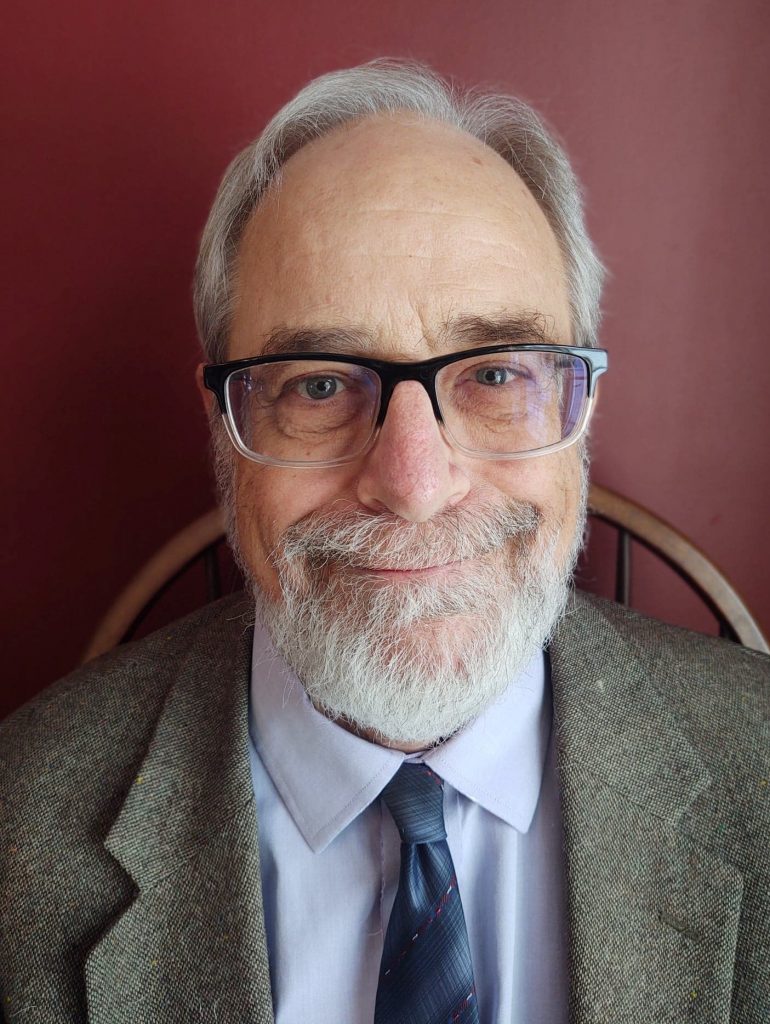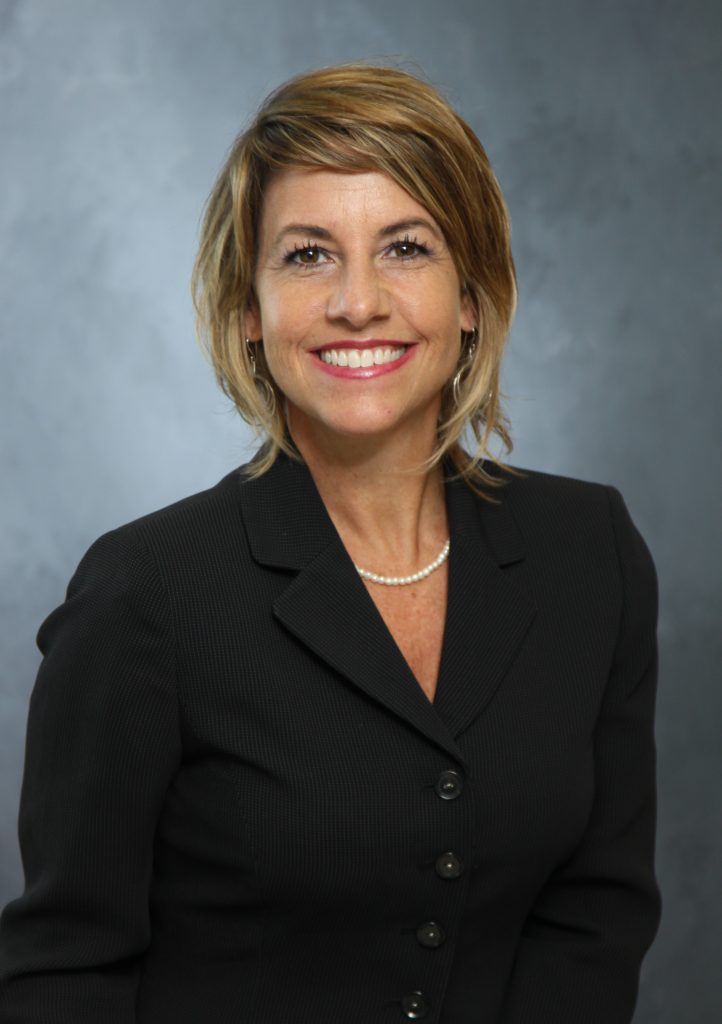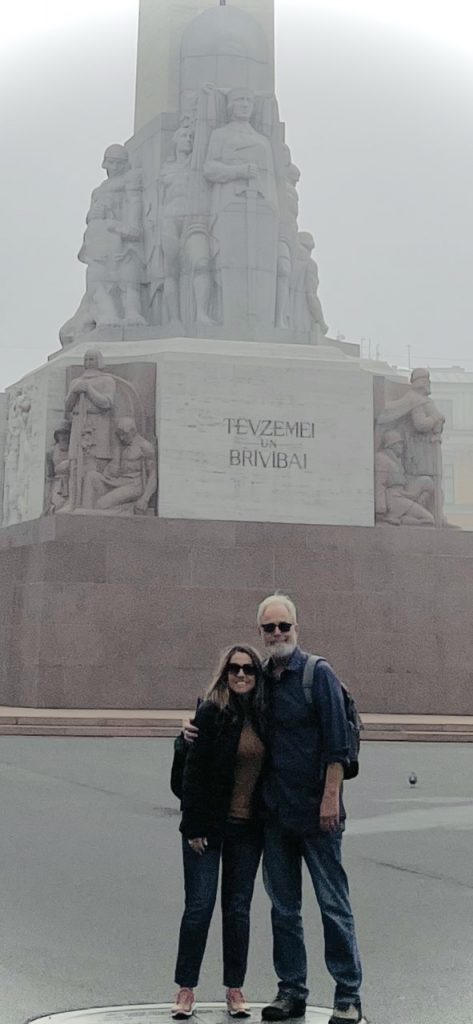Fulbright Chronicles, Volume 1, Number 2 (2022)
Author
Courtney Queen and Robert Osgood
Abstract


As Fulbright Scholars in Latvia during the multiple humanitarian crises of the COVID-19 pandemic, and the invasion of Ukraine by the Russian Federation, we discuss the impact of these events on our Fulbright activities and scholarship. Based on our experiences, we offer a few strategies on how to continue to grow professionally as Fulbright Scholars in the face of massive institutional restructuring and societal change.
Keywords
Latvia • COVID-19 • Ukraine • education • public health
Introduction
The mission of the Fulbright Program is to build mutual understanding between the United States and the partner country as well as advance knowledge across communities and improve lives around the world. Being Fulbright Scholars through a pandemic and the outbreak of war, we very soon came to realize that this privilege also encompassed a wide range of responsibilities and opportunities. Far beyond what initially seemed mostly academic in nature became far deeper and emotional than a routine assignment. This article explores different aspects of serving through crises, and how the role of global and social crises can, in fact, yield possibilities for growth, understanding, and constructive contributions beyond those directly prescribed by the grant.
As Fulbright Scholars in Latvia, with Riga Stradiņš University, Institute of Public Health, and the University of Latvia, School of Education, respectively, we were delayed a full award-year due to COVID-19. Through this period, we had become accustomed to uncertainty in the delivery of our educational programming, changes in curricula, pedagogy and mode of delivery, and the practice of making rapid changes to assessment practices. With the effects of COVID-19 on higher education and society still lingering, our time in Latvia was already greatly influenced by yet another event global in nature and especially profound in Latvia which was the invasion of the sovereign nation of Ukraine by the Russian Federation.
We arrived in January of 2022 with our families as Russia was already making disturbing moves and statements regarding its relationship with Ukraine and its military build-up near Ukraine’s borders. On February 24, 2022, six weeks after arriving in Riga, much of the attention of the world, and especially Latvia, was directed toward the invasion of the sovereign country of Ukraine by the Russian Federation. Although the Russian military units and personnel were not mobilized along Latvia’s border with Russia, having lost independence through a similar invasion, and subsequent occupation, Latvia and the Baltic countries were understandably very deeply troubled by the invasion.
As academics, we remain committed to our disciplines of Public Health and Education, so despite the distractions, every thread of our time with our collaborating institutions continued to remain focused towards accomplishing our project objectives. As Research and Teaching Scholars, the goals of our projects included traditional course lectures, and working with graduate students to meet their academic and professional goals. We shared a common thread with our appointments which was to support equity frameworks and inclusive pedagogical practices, but through these changing social conditions, our guiding questions became: what roles can we, and should we, play in working amid multiple humanitarian crises, our fundamental questions became: how do we navigate these changing realities so that we can achieve the goals and objectives for our grant activities, and more importantly, how can we support the work and the lives of those with whom we collaborate?
Growing Professionally as Fulbright Scholars Through Crisis
Having designed our Fulbright projects prior to COVID-19 and during a time which now seems like a very distant memory, we couldn’t even begin to imagine how the activities of our daily lives would completely be restructured by infectious disease and a pandemic, and it wasn’t even imaginable that war would break out in Europe. Reflecting on our hopes and dreams of advancing scholarship and making a difference in the world as Fulbright Scholars was starting to look very different in the face of multiple humanitarian crises. Many of the activities from our original proposals had to be renegotiated such as having to offer courses virtually, instead of in person. But, also, these events affected how we would connect and relate to our colleagues as well. All of a sudden, we were meeting colleagues virtually, instead of in person, and community outreach was largely on hold as Latvia was still on strict lock-down measures when we arrived. Then, with the invasion, the tone and mood of the virtual encounters was solemn and there was always a strong need to take time to acknowledge the events that were transpiring, pay respect to the victims, recount the mobilization activities for displaced families locally, and then just take the time to reflect how emotionally distracted everyone is because of fear, loss and the cultural and historical traumas because of their own relationship with invasion and war. The world is profoundly different than when we started this journey, but it is not lost, just very different. Given this, we would like to offer a few tips based on our experiences of how to continue to grow professionally as Fulbright Scholars in the face of massive institutional restructuring and societal change.
First, be flexible and empathetic. In a strictly grant-related sense, we had to alter our original intentions and objectives of the grant to better suit the realities on the ground. We adjusted pedagogies, lectures and teaching activities to be as effective as possible in a virtual environment. This was all accomplished across cultures and languages, and in very different settings than in the traditional classroom setting of our home countries. Due to the COVID-19 pandemic, and in the classrooms from which we came, we were already challenged with how to create and keep the energy of a traditional, in-person classroom as we all transitioned to a virtual environment. In many ways, we were able to rely on the same tools of engagement that we were already forced to adopt. Strategies and tactics found in leadership theory helped us engage others even across cultures, languages, and in a virtual environment. These include soliciting personal stories and observations from students about their real-life experiences, and including inviting others to speak to our students and share theirs as well. Additional strategies helpful for encouraging engagement in virtual environments, and across cultures, are using metaphors and presenting contrasting ideas. Moreover, and especially in crisis, it is important to reflect the sentiment of the group, and truly seek to connect and show empathy with the experiences of others during this time.
Second, be inclusive. These traumas allowed us, as educators, to lend our experience and perspective to facilitating discussion of issues and situations that arise as a result of these conditions. In addition to borrowing from leadership theory, borrowing from the original tenants of inclusive education is imperative. This exercise rests in the topic of how to actively create inclusive educational environments which advocate and support such inclusivity for students. Originally found in the literature regarding students with disabilities, then as a consequence of COVID-19, principles of creating inclusive educational environments is valuable for many other groups of students as well. Studies show that students who have contracted COVID-19 have experienced extra layers of exclusion due to physical isolation and health-based stigmatization of those who are feared may spread the disease. Additionally, displaced families and children from Ukraine face barriers created by exposure to violence, symptoms of post-traumatic stress disorder (PTSD), and challenges related to language, stigma, and a sense of belonging.
Our students, many of whom are professional practicing teachers and practitioners of public health, have sought advice and counsel on how to ease the inclusion of students and families in regular classrooms, or in public health programming such as with COVID-19. It was not uncommon to discuss strategies for creating a welcoming learning environment, offering information regarding the truth of the conditions of students and children in transition, then suggesting appropriate teaching methods and technologies that can lead to greater acceptance and inclusivity. Many times, this involved discussions of strategies for creating personal agency for both teachers and students and examples of creating inclusivity in the classroom by becoming co-learners with students. While much of the focus of the literature has shifted from disabilities and abilities to inclusivity, it has been exciting to see how these tools can be exercised for these practical and real-world circumstances. Drawing on the original body of thought regarding inclusive education has proven invaluable for navigating these new and emergent challenges in the classroom.
These unexpected circumstances have stretched our capacities as humans and as educators far beyond our expectations, and even imaginations, but not beyond our capacities as Fulbright Scholars to fully engage in all the privileges and opportunities afforded to us by the generosities and kindness of all those we have met along the way.
Third, be safe. It has become readily apparent that the importance of paying attention to local realities and staying informed through the Embassy, government websites, and both local and international news organizations, is not just casual lip service. As the COVID-19 crisis has slowly abated and the trauma of the invasion of Ukraine has grown exponentially, it is truly imperative that any Fulbright Scholar needs to become a knowledgeable and aware citizen of the locality, the nation, and the world. One must have knowledge of all the contextual factors which contributes to our making and the histories and lived experiences of our hosts. Not just for personal safety and awareness is this important; so too it is imperative for being able to connect with the experiences of our local colleagues.
Conclusion
As the war moved into the fourth month, and the pandemic into the third year, it has become clear that the role of a Fulbright Scholar is diplomatic and humanistic, as well as academic. Despite the massive shifts with our institutions, and in the world, excellence as a Fulbrighter remained paramount. Throughout the experience of societal change and monumental tragedy, and together with our colleagues and communities, we continued to forge new collaborations and generate innovative ideas toward our common goals. Above all, excellence as a Fulbrighter was made more rich, more intimate, and more transformative through these events. While success and achievement are well noted in orientations, it expresses itself vividly when confronted with real traumas and crises among your students, colleagues, friends, neighbours, and members of the wider community. These unexpected circumstances have stretched our capacities as humans and as educators far beyond our expectations, and even imaginations, but not beyond our capacities as Fulbright Scholars to fully engage in all the privileges and opportunities afforded to us by the generosities and kindness of all those we have met along the way. We assume these qualities are in many ways responsible for us being here; but to put them to use in unexpected yet vitally important fashion can be as rewarding as it is challenging.
Notes
- Queen, Courtney. 2022. Applying charismatic leadership to support learner engagement in virtual environments: Teaching and learning in a time of crisis. Pedagogy in Health Promotion.
- Osgood, Robert L. The History of Inclusion in the United States. Washington, DC: Gallaudet University Press, 2005.

Biography
Courtney Queen, Ph.D. is a Fulbright Scholar at Riga Stradiņš University with the Institute of Public Health. Dr. Queen is an Assistant Professor of Public Health in the Julia Jones Matthews School of Population and Public Health at Texas Tech University Health Sciences Center. She resided in Riga, Latvia as a Fulbright Scholar, with her 7-year-old daughter, during the multiple humanitarian crisis of the COVID-19 pandemic and the invasion of the sovereign nation of Ukraine by the Russian Federation. She can be reached at courtney.m.queen@ttuhsc.edu
Robert Osgood, Ph.D. is a retired Professor of Education. He has served as a faculty member at universities in California, New York, Indiana, Ohio, and Wisconsin as well as in Japan and Malaysia. For his Fulbright grant he has been working with the Faculty of Pedagogy, Psychology and Art at the University of Latvia in Riga since January 2022. He can be reached at rosgood28@yahoo.com
